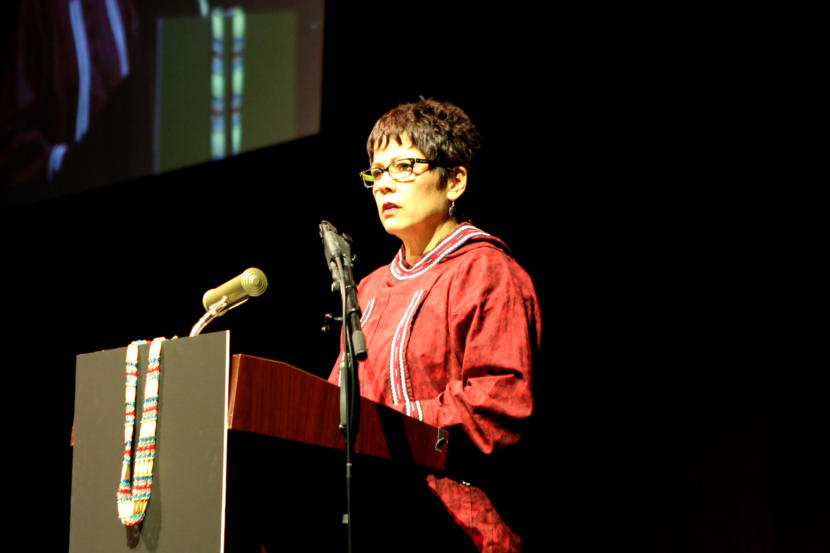
During the second day of the Alaska Federation of Natives convention in Fairbanks, the effort to recall Gov. Mike Dunleavy became a heavy theme.
That was most prominent when Sophie Minich, the president and CEO of Cook Inlet Region Inc. (CIRI) took the stage to explain the company’s decision to support the recall effort.
“The governor’s violation of separation of powers and misuse of state funds, and the impacts of his misguided, ill-advised attempts to decrease government spending in Alaska were all a part of CIRI’s wake-up call,” she said.
Minich said CIRI is one of the state’s economic “powerhouses,” and it supports removing the governor from office in order to head off what it believes are disastrous policies for residents and the business community.
Like most Alaska Native corporations, CIRI rarely wades so openly into contentious political fights. But Minich said after watching the new administration closely for several months, the corporation’s leaders felt compelled to take a stand.
“Are we being good corporate citizens if we stand by in silence while this administration takes actions that are in opposition of our values and of our culture? Our answer to these questions was a resounding ‘no,’” she said.
Minich’s address was met with a standing ovation. Dunleavy was not at the convention, having left for other commitments Thursday after his speech.
In a room just outside the main convention hall, organizers for the recall effort had a booth set up. Organizers couldn’t gather any new signatures; they were waiting for a decision from the Division of Elections on the proposed recall’s legal standing. So instead, they offered information, handed out buttons and T-shirts, and asked people to sign pledges with contact information so they can reach them when the next stage of signature-gathering begins.
“I cannot tell you how popular the buttons have been. So we’re making more buttons as we speak,” said Claire Pywell, campaign director for the recall effort.
Another pointed moment, directed at the Dunleavy administration, came during remarks by Joel Bolger, chief justice on the Alaska Supreme Court. Bolger described different problems facing the judiciary, including a lack of resources for delivering timely justice.
Another issue, he said, is increasing political pressure threatening the judiciary’s independence.
“Some people want to make the judicial selection system more political. Others would like to impose political consequences for the content of judicial decisions. So I respectfully ask this convention to join me in resisting political influence in our courts,” he said.
After his remarks, Bolger declined to offer any specific examples of improper pressure on the judiciary. But one of the charges in the recall effort is the Dunleavy administration striking $335,000 from the courts’ budget because of its disagreement over a ruling on abortion access.
